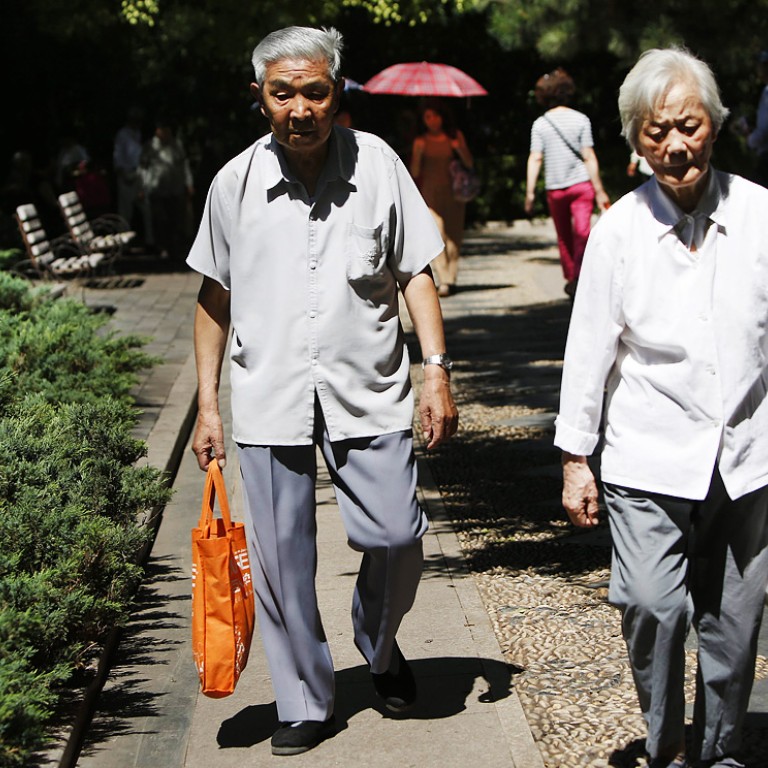
Millions of China’s state workers to start paying into pension funds
Nearly 40 million civil servants and employees at public institutions will have to contribute to their retirement funds as country rapidly ages
Millions of government workers will have to start paying into a pension scheme, topping up contributions already made by the state as the mainland seeks to create a sustainable and fairer safety net for its rapidly ageing population.
Nearly 40 million civil servants, doctors, teachers and researchers in government agencies and public institutions across the country will be affected by the scheme unveiled on Wednesday by the Ministry of Human Resources and Social Security.
According to Xinhua, government workers' pensions had become a huge burden on the state and were unsustainable.
Under the new arrangements, backdated to October, the workers will have to pay 8 per cent of their monthly salary into a pool, with their employer contributing the equivalent of 20 per cent of their salary.
It brings the conditions in line with those in the private sector, where employees already contribute 8 per cent of their salary to pension accounts, on top of the 20 per cent paid by employers.
Critics of the two-decade-old pension system had long argued that it favoured civil servants and other types of public sector workers.
Yin Jun, professor of Wuhan University's school of political sciences and public administration, said the payment changes made the system fairer but there were still question marks over its sustainability.
"This reform makes the system fairer for everyone across the board, but major challenges remain, namely how the money in the pension system can be better managed, as well as the need to increase the retirement age," Yin said.
He said those issues would probably be controversial in the community and the government should allow an open discussion on the matter.
Unskilled workers, who make up most of the mainland's workforce, would oppose a delay to retirement, he said.
Yin also said the changes would not mean lower incomes for employees in state agencies because their salaries would be adjusted as the new plan took effect.
The mainland had nearly 7.2 million civil servants and more than 31.5 million public-sector workers employed by institutions such as schools and hospitals at the end of 2013, according to the State Administration of Civil Service.
The new rules would also allow government agencies and public institutions to hire and fire workers, just as private firms could, helping counter the perception that government workers had jobs for life, the administration said.
China has the world's biggest elderly population, with 194 million people at or above the age of 60, according to the China National Committee on Ageing.
